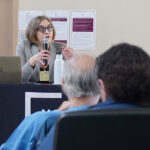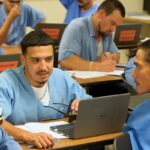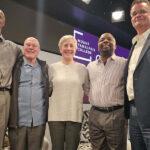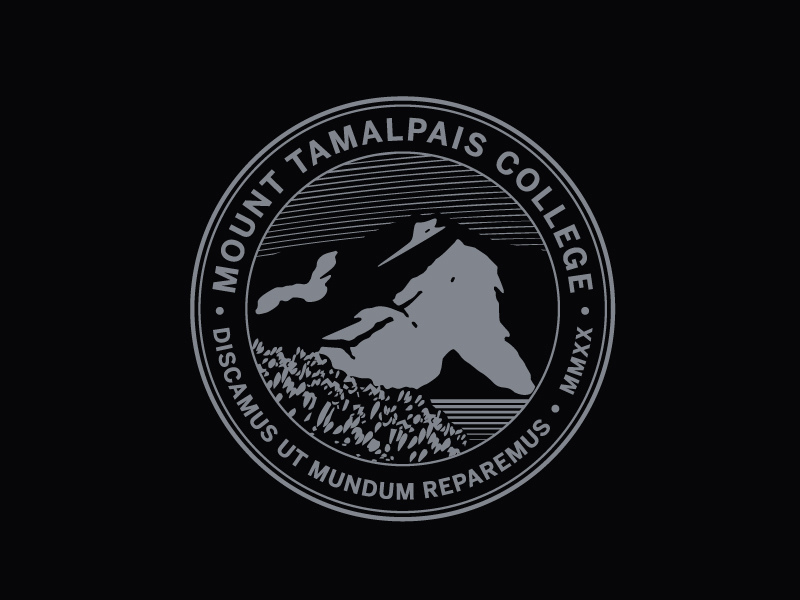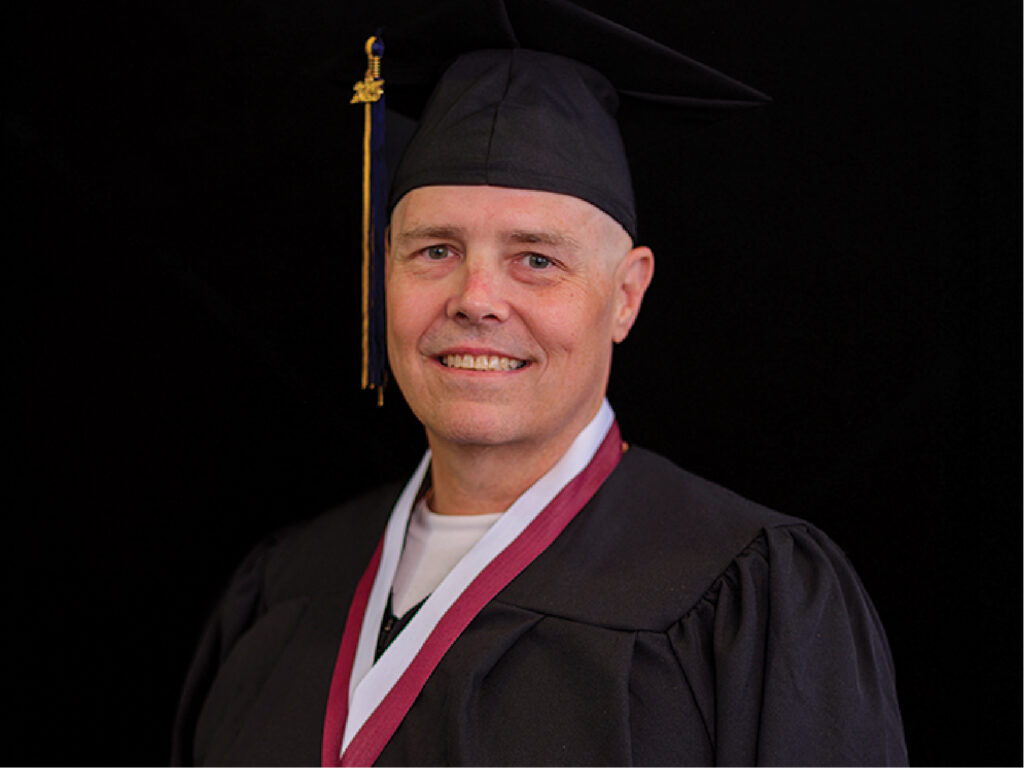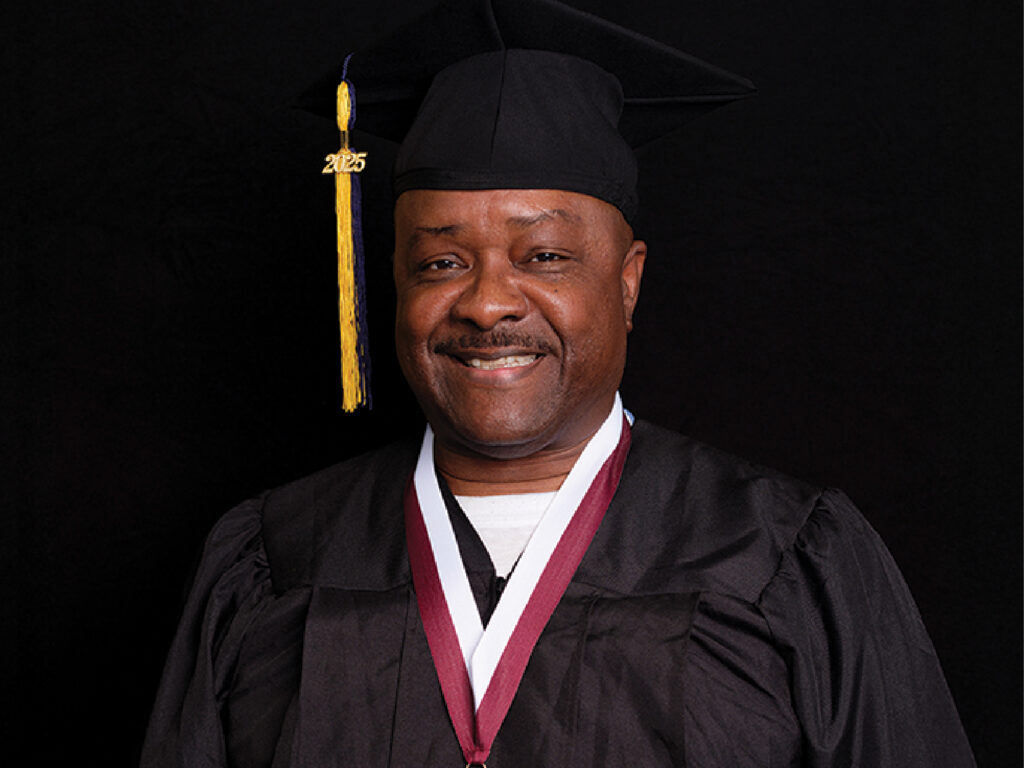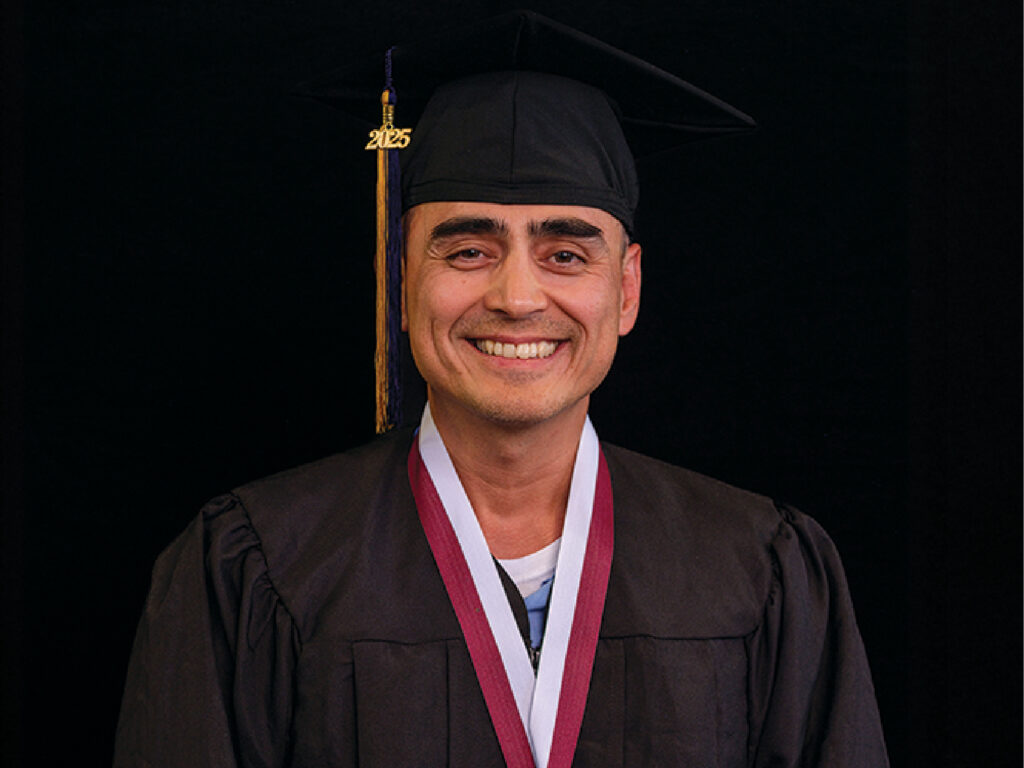PJP’s San Quentin Correspondent Joe Garcia talked to us about his recent feature covering the first in-person graduation of students from Mount Tamalpais College in three years. MTC is the nation’s only independent and fully accredited college program that operates exclusively in a prison. While a recent relaxing of the California Department of Corrections and Rehabilitation’s (CDCR) COVID-19 policy allowed the event to happen, persistent infection in various blocks complicated the celebration. Garcia’s piece explored the accomplishment of his peers alongside the heavyweight that COVID-19 restrictions continue to bear upon life for incarcerated Americans. Read our interview below to learn more about how this story came to life and the changing protocol inside the California prison system.
PJP: When did you realize there was a story here that PJP readers should read?
JG: I had a feeling the Mount Tamalpais graduation would be a good story because it was a huge deal to get everybody there in person. Because of the COVID-19 shutdowns, there hadn’t been an in-person graduation for the last couple of years. And, it was a big deal because one building was still on quarantine. The event wouldn’t have been allowed if the CDCR hadn’t updated their policies. At least a third of the graduates who were supposed to walk in their caps and gowns lived in that quarantined building. So there was this whole issue: Would they be excluded? Would CDCR figure out a way for them to test and get cleared quickly? Especially because their outside family members had been invited months ago to come to San Quentin and attend the event.
PJP: What was your process in writing this story?
JG: My process with any story is to take as many notes as possible. So often there are things that come up when writing, and I would wish I had paid attention to the clothes people were wearing or written down numbers, like how many people were present.
PJP: Can you say a little more about the emotional atmosphere of the ceremony?
JG: The emotions at the event were mixed. People are frustrated in general, with COVID-19 and the quarantines and the shutdowns. People are beaten down by the endless loss of programming. People have lost the opportunity to do the things that had been done at San Quentin for decades, so there was that subdued nature to it. But then also, there’s this inspirational, uplifting feeling of emancipation when these events actually happen. It’s like, wow, finally, this is what we’re supposed to be doing if COVID-19 wasn’t in the way. And because so many of these events are in the San Quentin chapel, there’s an extra layer of reverence, to some degree.
PJP: What was it like interviewing the families of the graduates? Were people eager to talk about the graduation?
JG: That was actually the best part of the whole thing: interviewing the family of graduates. Darryl Farris’s mom, at 90 years old, was just so vital and alive. It was amazing that she was able to attend.
PJP: How many other people incarcerated in SQ were able to attend the ceremony?
JG: Because of the quarantine, it wasn’t really billed as open for all residents. Under normal times, CDCR would have made sure that everybody who was supposed to be there was there and then they would just open the doors for anybody else who wanted to attend. But this time, there were only around 20 or 30 incarcerated guests. And then there were probably about 30 outside attendees.
PJP: What was its impact for those who were not able to attend or were not part of the festivities? Do you see this as a motivating event for others considering pursuing an education while incarcerated?
JG: It should have been a motivating event. It was in one sense, because they allowed it to happen and because it means so much to the whole community. But then the whole community couldn’t really partake in it, so that was negative. There was another negative aspect too because a lot of people were really upset that the staff allowed guys from the North Block to test and go to the chapel and hang out with their families. Other guys in North Block who weren’t graduates weren’t allowed to test and visit with their families because, when a building is on quarantine, all their visits are canceled. And then, on top of that, there was the general feeling that these quarantines were so arbitrary and stifling and nonsensical because no one was really sick.
Read more of Joe Garcia’s stories here, and stay tuned for his newest report on San Quentin’s COVID-19 policy.

